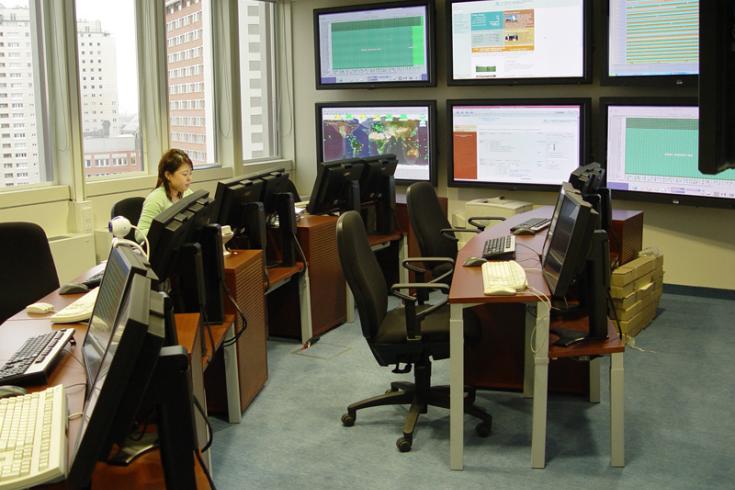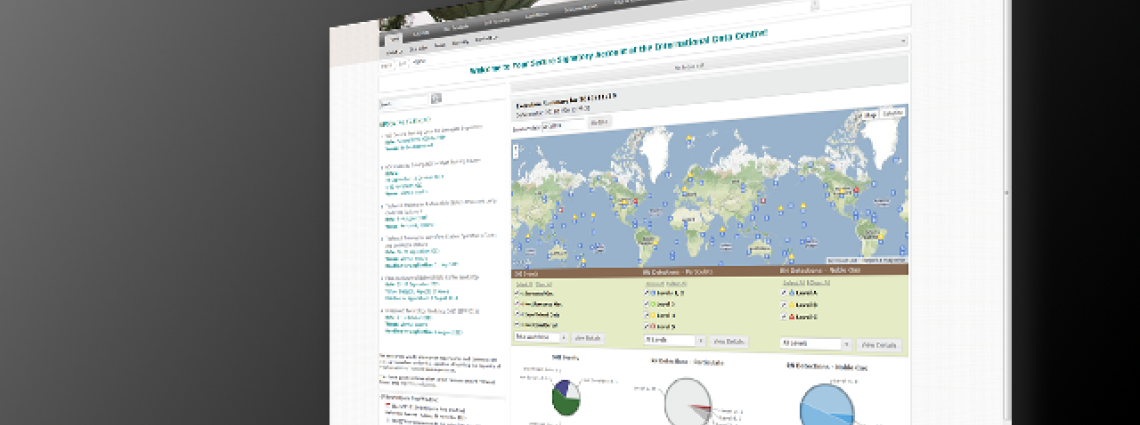CTBTO upgrades online services for Member States
User-friendly and customisable IDC Secure Web Portal
When complete, the CTBTO's International Monitoring System (IMS) will comprise 337 seismic, radionuclide, hydroacoustic and infrasound facilities to detect signs of a nuclear explosion anywhere on the planet. Nearly 90 percent of these IMS facilities are already operational and sending data to the International Data Centre (IDC) in Vienna for analysis.

The operations room in the International Data Centre
Each of the CTBTO’s 183 Member States may designate up to 6 institutions and 28 authorized users. At present, there are over 1,500 users in around 130 countries, with increasing tendency especially in developing countries.

Through frequent workshops and training, the CTBTO builds capacity especially in developing countries to make better use of CTBTO data.
Furthermore, the data are a valuable asset for scientific research, such as on climate change ( brochure ), oceans and marine life, or on meteors blasts (video). For specific research projects, independent scientific and research institutions may apply for access to the CTBTO’s virtual Data Exploitation Center (vDEC).

The potential of CTBTO data for disaster warning and science was also discussed at the June 2013 Science and Technology Conference in Vienna.
The IDC Secure Web Portal is a major step forward in making our services more user-friendly. This one-stop-shop provides equal, open, timely and convenient access to all IMS data and IDC products.
- IMS data
- IDC analyses
- Technical assistance and services
- Information on the status of health of IMS stations
- Information on non-verification uses of IMS data such as tsunami warning
New features include a forum where experts can share their analyses and upload their calculations, customizable presentation layers and detailed information on recent events of interest such as the February 2013 announced nuclear test by the Democratic People's Republic of Korea (DPRK).

The CTBTO was the only entity worldwide to detect traces of radioactive noble gas attributable to the February 2013 DPRK announced nuclear test.
Delegates’ Communication System also upgraded
The main communication platform for delegates to the CTBTO’s governing bodies, the Experts Communication System (ECS), has also been upgraded to deliver a responsive, appealing and stable user experience across multiple platforms. New features include:
- Integrated playback of archived videos and live video streams
- Improved search capabilities
- Access to presentations
- Enhanced notification schedules for notifications
- Bulk download of documents
- Designed also for use on mobile devices

The CTBTO's main governing body, the Preparatory Commission, in session in Vienna.
- Single sign-on CTBTO Web Portal
To apply for access to the CTBTO Web Portal, contact [email protected]
- Experts Communication System
If you would like to become an authorized user of the Experts Communication System, please download the ECS Application Form ( PDF ) and submit it by email to [email protected]. Please note that applicants from States Signatories should be nominated by way of a note verbale from their Permanent Mission.
Access for scientific and research institutions
- To apply for access to the virtual Data Exploitation Center, contact Mark Prior, [email protected]
9 Jan 2014
